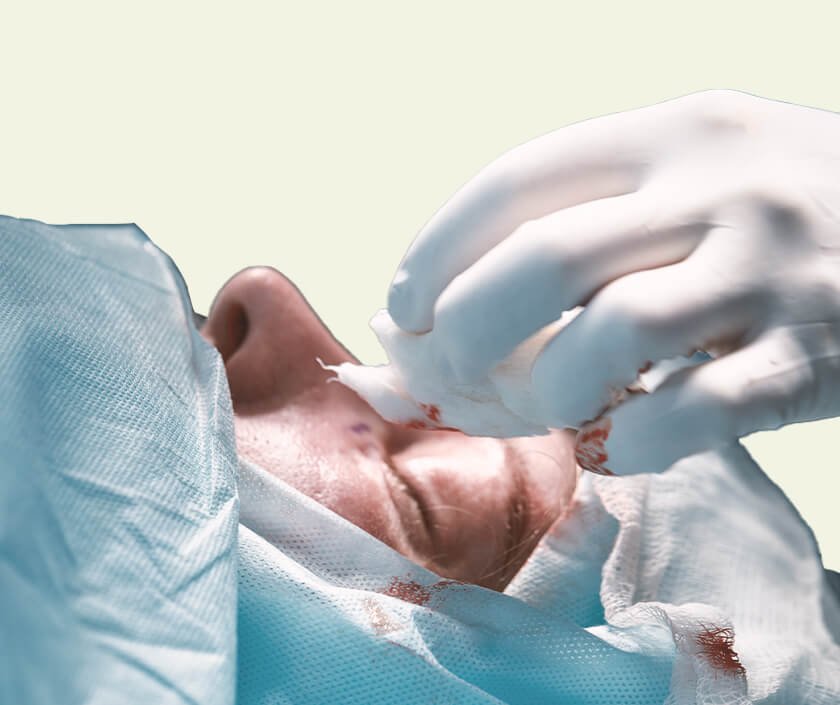Nerve disorders are most frequent in the upper (hand and arm) and lower (leg) extremities. It can be induced either by blunt trauma, such as a fall or a traction injury caused by a motor vehicle accident, or by a sharp trauma, such as a direct knife wound. In any case, major nerve injuries need specialist assessment and care. For certain cases where the nerve remains partially intact, close monitoring and time can be all that is needed to recover. For certain cases, though, these injuries may require surgical reconstruction. There are over 100 various forms of nerve trauma. The multiple types may have different patterns and may need various methods of treatment.
You will not need surgery if your nerve is recovering well. You can have to rest the infected area before it is healed. Slow recovery of the nerves and full recovery can take several months or several years. You ‘re going to need daily tests to make sure your healing stays on track. When the injury is due to a medical condition, the underlying illness should be treated by the doctor. Based on the scope and severity of your nerve damage, you may need medicine to alleviate the pain. Medications used to treat depression, epilepsy or insomnia can be used to alleviate pain in the nerves. For certain cases, you might need injections of corticosteroids to relieve pain.
Nerve grafting from the lower leg Peripheral nerve graft Open the Nerve Transfer dialog box Nerve Transfer Open pop-up dialog If your injury does not appear to be able to heal properly, an EMG test may be used by your surgeon in the operating room to assess whether the scarred nerves are starting to recover. Doing an EMG test directly on the nerve is more accurate and consistent than doing a skin test. Often a nerve sits in a tight space or is scarred. In these cases, your surgeon may enlarge the space or release the nerve from the scar.
Often the nerve segment is completely cut or irreparably damaged. Your surgeon can remove the damaged part and reconstruct healthy nerve ends or implant a piece of nerve from some other part of your body (nerve graft). Such procedures will help your nerves grow. If you have an extremely severe nerve injury, your doctor can recommend surgery to restore essential muscle function by moving tendons from one muscle to the next.
Dr. Ashutosh believes in the health and safety of patients, so we have the experts who are excellent in their work as well as brilliant experience holders. We welcome you to come to us for the ideal solution for your complications.
If you have any questions regarding our services, please contact us or call at +91 9879546805.
Hear from our patients
EXCELLENTTrustindex verifies that the original source of the review is Google. Dr.shah is very kind and understanding... during my surgery of xentholesma..sir didn't late me feel nervous at all..he kept talking to me..he kept singing classic old hindi songs while performing surgery..I was like "ye to apne type ka banda hai"..I didn't even realise when my surgery got over. mr. Bhargav in staff and other team members were very kind an supportive.. I just have one minor complaint..simple panipuri wala or vegetable person in surat is always ready to receive online,UPI ,QR payment..but,pharmacist over their always be like "mera to cash payment hoga". Rest all is good.. people over there are very sincere at their work. I would definitely suggest to visit elegance clinic for getting your xentholesma cured.treatment charges are also affordable.Posted onTrustindex verifies that the original source of the review is Google. I am fully satisfied my hydrafacial treatmentPosted onTrustindex verifies that the original source of the review is Google. The experience was too good staff was really humble and the results were actually good!Posted onTrustindex verifies that the original source of the review is Google. I got hair transplant which is very painful but Got it done on ELEGANCE so it was very normal and which was bery helpful for me Special thanks to staff.Posted onTrustindex verifies that the original source of the review is Google. I had PRP and laser treatments at Elegance clinic for my skin and hair, and the experience has been truly excellent. Dr. Krina handled my skin treatment with great care and attention — I noticed a visible improvement in my skin texture and glow. For my hair, Dr. Bhargav and Dr. Ashutosh guided me through the PRP sessions with patience and professionalism, ensuring I was comfortable and well-informed throughout. The entire staff is polite, supportive, and the clinic maintains high standards of hygiene and advanced equipment. Overall, I’m very satisfied with the results and would highly recommend this hospital to anyone looking for genuine care and effective treatmPosted onTrustindex verifies that the original source of the review is Google. Dr Asutosh sir is very excellent Tammy tack sargary..Posted onTrustindex verifies that the original source of the review is Google. A good doctor clinic review often highlights a clinic's positive aspects, such as a doctor's expertise, a friendly and competent staff, convenient hours, and a clean, comfortable environment.Posted onTrustindex verifies that the original source of the review is Google. After suffering a serious burn injury due to a machine accident, I was fortunate to be treated by Dr. Ashutosh Shah at Elegance Clinic. His skill and calm approach gave me confidence from the first consultation. The surgery was done with great care, and the recovery support was outstanding. The clinic is clean and peaceful, and the staff treats you like family. Forever thankful for their help during a very tough timePosted onTrustindex verifies that the original source of the review is Google. One of the best doctors as well as staff in the town, just loved the process post surgery, follow up calls is non negotiable for them. Dr ashutosh shah and dr chetan were incredible. Best service provided by the elegance clinic!Posted onTrustindex verifies that the original source of the review is Google. "We had a wonderful experience at Elegance Clinic for my wife's HIFU treatment. The staff was friendly and supportive, and the clinic environment was very professional. Dr. Ashutosh Shah took the time to explain the procedure and what to expect. The final result is excellent—my wife's skin looks much firmer and rejuvenated. She is very happy, which makes me happy! A truly world-class clinic for aesthetic procedures
Frequently Asked Questions
Having doubts and questions? These are few questions our customers normally ask us!
What type of surgery is done for nerve damage?
Surgeries range from nerve decompression, nerve grafting, nerve transfer, to microsurgical nerve repair, depending on the type and extent of the nerve injury.
Is there any treatment for nerve damage?
Yes, treatments include surgical repair for severed or damaged nerves and non-surgical options for less severe nerve injuries.
Do damaged nerves ever heal?
While nerves heal slowly, advances in surgical techniques have significantly improved outcomes, allowing many patients to regain function and sensation.
Is nerve surgery expensive?
Costs vary based on the complexity of the surgery and the healthcare setting. Elegance Clinic offers competitive pricing and works with patients to find affordable solutions.
Does an MRI show nerve damage?
MRI can be useful in diagnosing nerve damage, especially in conjunction with other diagnostic tools like nerve conduction studies and electromyography (EMG).
Which vitamin is best for nerve repair?
Vitamin B12 is often recommended for nerve repair as it supports nerve regeneration and function.
Can nerves take 2 years to heal?
Nerve healing is a slow process, and while significant improvement is often seen within the first year, some nerves can continue to recover over two years or more.
How can I heal my nerves naturally?
A balanced diet, adequate rest, and avoiding further nerve injury are crucial. Supplements like Vitamin B12 and omega-3 fatty acids may also support nerve health.
Contact Us
Ready to discuss? Fill out our contact form for a confidential consultation.








